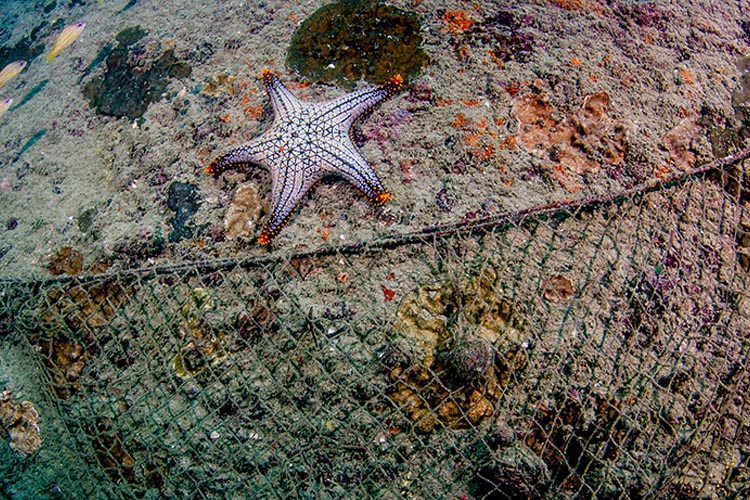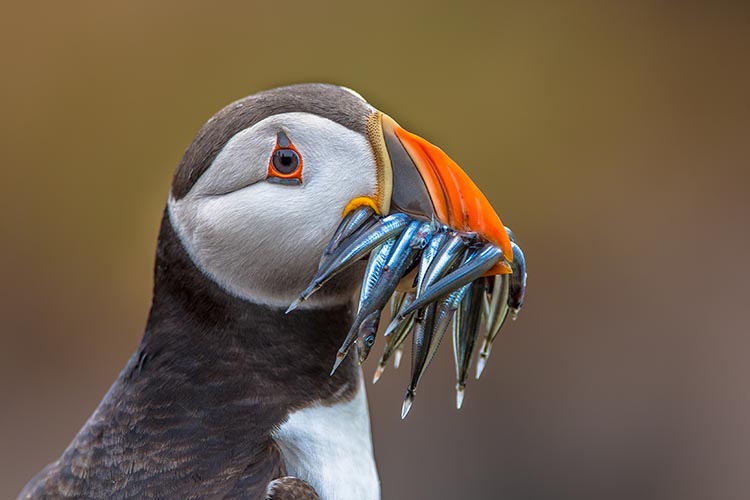
By DIVE Staff
The UK Government has announced new measures to protect the UK’s waters, including a byelaw that will see 13 new English Marine Protected Areas (MPAs) safeguarded against bottom trawling.
The new plans will also see a permanent end to sandeel fishing in English parts of the North Sea implemented from April, following a trial closure of the sandeel fisheries in the Dogger Bank fishing zone in 2023.
The new MPAs will see more than 4,000 square kilometres of seabed – an area equivalent to the size of the English county, Essex – safeguarded from bottom trawl fishing, raising the total area of English seabed now protected from bottom trawling to 12 per cent. A total of 377 MPAs across the UK have now been implemented, protecting some 38 per cent of the UK’s waters.
The 13 new MPAs in England include areas off the south coast of the Isle of Wight, west of Land’s End, Cornwall and east of Lowestoft, Suffolk. Important benthic sea life such as pink sea fans, sponges and anemones will all now be protected from damage by trawlers, and the sandeel fishing ban will restore an important source of food for puffins and other seabirds, harbour porpoises, and commercially important fish species such as haddock and whiting.
The Marine Conservation Society (MCS) has said that it welcomes the announcement, which – if properly implemented – will allow important habitats to recover, benefitting both marine life and the seabed’s role in carbon sequestration.
More from the Marine Conservation Society:
- MCS’s 2024 trends helping to save the seas
- MCS report finds increase in UK and Irish jellyfish sightings
- Only 13 per cent of MCS seafood ratings are ‘green’
- MCS UK’s Great British Beach Clean 2023
- New MCS study shows ocean protection’s worth

‘Today’s announcements are crucial in properly protecting our seas,’ said Gareth Cunningham, Director of Conservation and Policy at the Marine Conservation Society. ‘The closure of English waters to sandeel fishing allows vast areas outside our network of protected areas much-needed breathing room, benefiting a host of marine species, from fragile sea sponges to the fish, cetaceans and seabirds that rely on sandeels for food.’
MCS says it has observed a 98 per cent decrease in fishing activity since the UK Government closed four large offshore sites to bottom trawling, including more than 12,300 sq km of the Dogger Bank MPA. The charity says that the closure of the North Sea’s English waters to sandeel fishing’removes another threat to the health of our seas, ensuring that the UK’s declining seabird population, and many more marine species, can rely on this vital food source – a cornerstone of the marine ecosystem.’
The UK Government has set a target to fully protect all English offshore sites designated as MPAs for their seabed features – a further 28 area – by the end of 2024. The new MPAs form part of the UK’s commitment to the Global 30×30 targets, which aim to see 30 per cent of all land and sea protected by 2030.
For more information, the Marine Conservation Society has compiled a Marine Protected Area Reality Checker to investigate the extent of protections in place.


